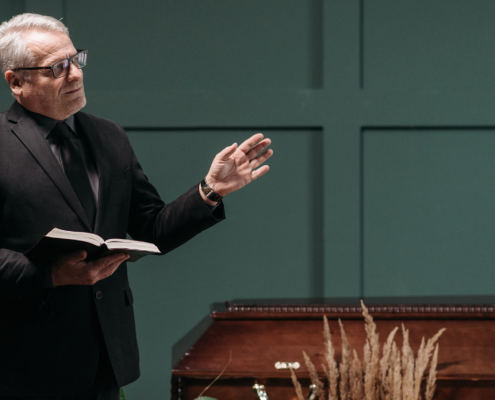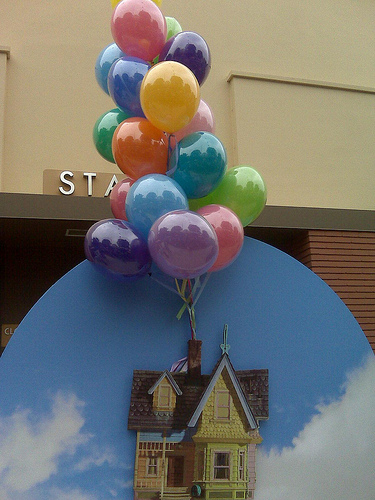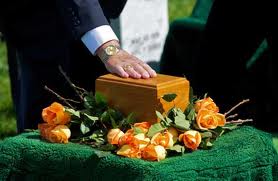The Role of a Funeral Director in Cremation Services: What Families Should Expect
 If you’ve never planned a funeral or cremation before, the idea of contacting a funeral director might feel a little intimidating. Maybe even surreal. It’s not a phone call anyone wants to make—but when that moment comes, our job is to make it feel less like a transaction and more like a hand on your shoulder.
If you’ve never planned a funeral or cremation before, the idea of contacting a funeral director might feel a little intimidating. Maybe even surreal. It’s not a phone call anyone wants to make—but when that moment comes, our job is to make it feel less like a transaction and more like a hand on your shoulder.
At Tranquillity Burial & Cremation Services, we see ourselves as more than organizers. We’re here to guide, to listen, and, when needed, to carry the weight with you.
More Than Logistics
A lot of people think of funeral directors as the ones who handle paperwork, schedules, or transport. And yes, that’s part of what we do. But the heart of the role runs deeper.
When a family walks through our doors—or picks up the phone, unsure of what to ask—we meet them where they are. Shock, sorrow, confusion… there’s no “right” way to feel when loss shows up. Our job is to create calm in the middle of all that.
We talk people through the options at their own pace. Whether they’re looking into traditional arrangements or considering cremation services, we help them feel like they’re not navigating this alone.
What to Expect During the Cremation Process
Every family’s needs are different, but the support they deserve stays the same. When a family chooses cremation, a funeral director is involved from start to finish.
We handle the coordination with crematorium staff, ensure all necessary legal documentation is completed, and talk through decisions like urn selection or final resting place. If the family chooses to hold a gathering—whether that’s a private goodbye or a full celebration of life—we help plan it with intention and care.
And if someone has already gone through cremation pre-planning, we’re there to make sure those wishes are honoured to the letter.
Pre-planning often brings families incredible peace. Knowing that everything has been decided in advance, with cost and preference accounted for, helps loved ones focus on remembering—not scrambling.
Holding Space for Grief
There’s a quiet part of this job that isn’t on any checklist: presence.
Sometimes, we don’t say much. We sit with people. We listen. And when needed, we help them begin to process a world that suddenly looks different.
A good funeral director is also a grief support advocate. Not a therapist, not a replacement for long-term support—but someone who understands that grief is not one-size-fits-all. We don’t rush it. We don’t try to tidy it up. We offer compassion, and time.
You wouldn’t believe how often someone says, “I didn’t know I needed to hear that today.” That’s the part that stays with us.
Personalizing the Goodbye
Whether it’s a small family memorial service or a larger gathering, we help shape moments that reflect the life lived—not just the life lost.
That might mean playing their favourite song instead of a traditional hymn. Or setting up a photo board full of goofy snapshots. Or suggesting a ceremony outdoors, under the trees they used to love.
This isn’t about formality—it’s about authenticity. The kind that makes people say, “That felt like them.”
Funeral directors work behind the scenes, yes—but we also help families bring meaning to the forefront.
The Follow-Up You Might Not Expect
After the service, after the cremation is complete, many people assume our role ends. But for some families, it’s just the beginning of the next chapter.
We stay in touch when needed. Offer local grief support resources. Sometimes we even help with things like thank-you cards or follow-up arrangements. It’s never about obligation. It’s about knowing that support shouldn’t end with the paperwork.
Behind the Quiet Work
A funeral director is not just someone who makes arrangements. We’re there to walk with you—sometimes ahead to clear the path, sometimes beside you in silence, sometimes just holding the door open.
When you’re navigating the loss of someone you love, you shouldn’t have to carry every detail alone.
At Tranquillity, our approach to cremation services and funeral care is built on empathy, experience, and deep respect—for the families we serve and the lives they entrust us to honour.









